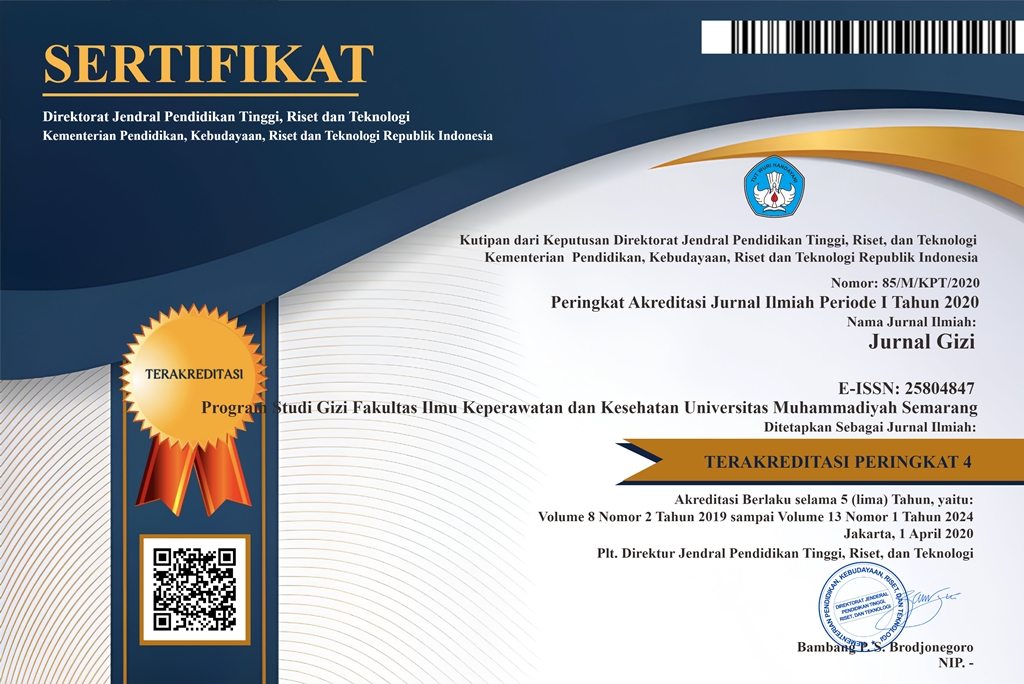Hubungan Kepatuhan Minum Tablet Besi dan Status Gizi Ibu Hamil dengan Berat Badan Bayi Lahir di UPT Puskesmas Gondosari Kecamatan Gebog Kabupaten Kudus
(1)
(2)
(3)
(*) Corresponding Author
Abstract
The problem of malnutrition is a major health problem and is a cause of maternal and child mortality . Infant and maternal mortality and infant with low birth weight (LBW) is specified by maternal nutritional status during pregnancy . Pregnant women who experience chronic Energy Deficiency (CED) or MUAC < 23.5 cm more likely to deliver low birth weight babies, which is marked with a birth weight less than 2,500 grams. Pregnant women at high risk for iron deficiency anemia due to iron requirements increase during pregnancy. The low compliance in pregnant women taking iron tablets cause the high iron deficiency anemia in pregnant women.
This research is explanative, with a retrospective cohort design, conducted in March-April 2014 in the UPT Puskesmas Gondosari. Amount equal to the total sample population is 42 people.
Pregnant women who drink wayward iron tablets there are 22 people ( 52.4 % ) and the nutritional status of SEZ as many as 20 people (47.6 %) . Birth weight LBW infants have 2 babies (4.76 %). There is a relationship adherence with iron tablets weight babies born with p = 0.011. There is a relationship between the nutritional status of pregnant women with birth weight infants with p =0.001.
This research is explanative, with a retrospective cohort design, conducted in March-April 2014 in the UPT Puskesmas Gondosari. Amount equal to the total sample population is 42 people.
Pregnant women who drink wayward iron tablets there are 22 people ( 52.4 % ) and the nutritional status of SEZ as many as 20 people (47.6 %) . Birth weight LBW infants have 2 babies (4.76 %). There is a relationship adherence with iron tablets weight babies born with p = 0.011. There is a relationship between the nutritional status of pregnant women with birth weight infants with p =0.001.
Full Text:
PDFArticle Metrics
Abstract view : 2636 timesPDF - 1825 times
DOI: https://doi.org/10.26714/jg.4.1.2015.%25p
Refbacks
- There are currently no refbacks.
Diterbitkan oleh: Program Studi Gizi (D3 dan S1)
Fakultas Ilmu Keperawatan dan Kesehatan
Universitas Muhammadiyah Semarang
Sekretariat: Jl. Kedungmundu Raya No. 18 Semarang
Contact Person : Hapsari Sulistya Kusuma, S.Gz, M.Si (+62 85 6 41 536 553)

This work is licensed under a Creative Commons Attribution 4.0 International License.









.png)
.png)